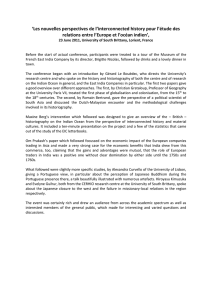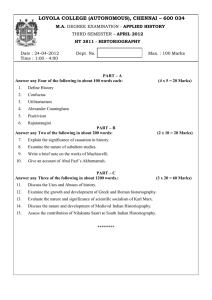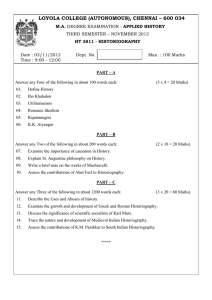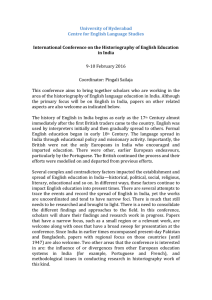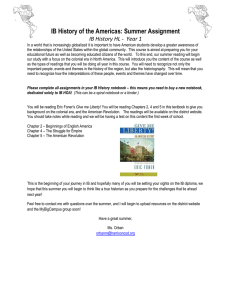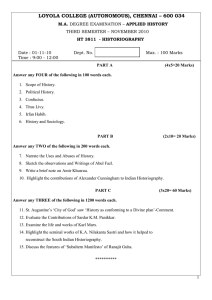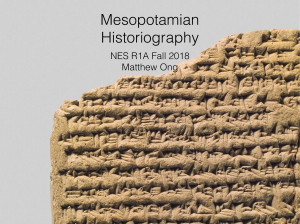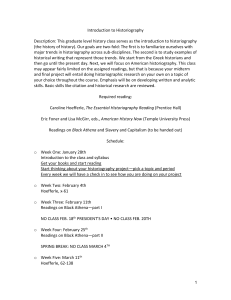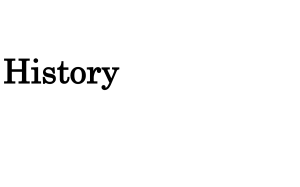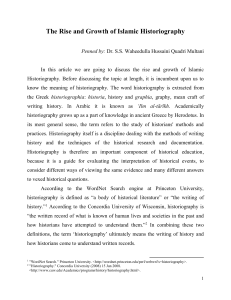HISTORY G R A D U A T E ... Summer 2016
advertisement
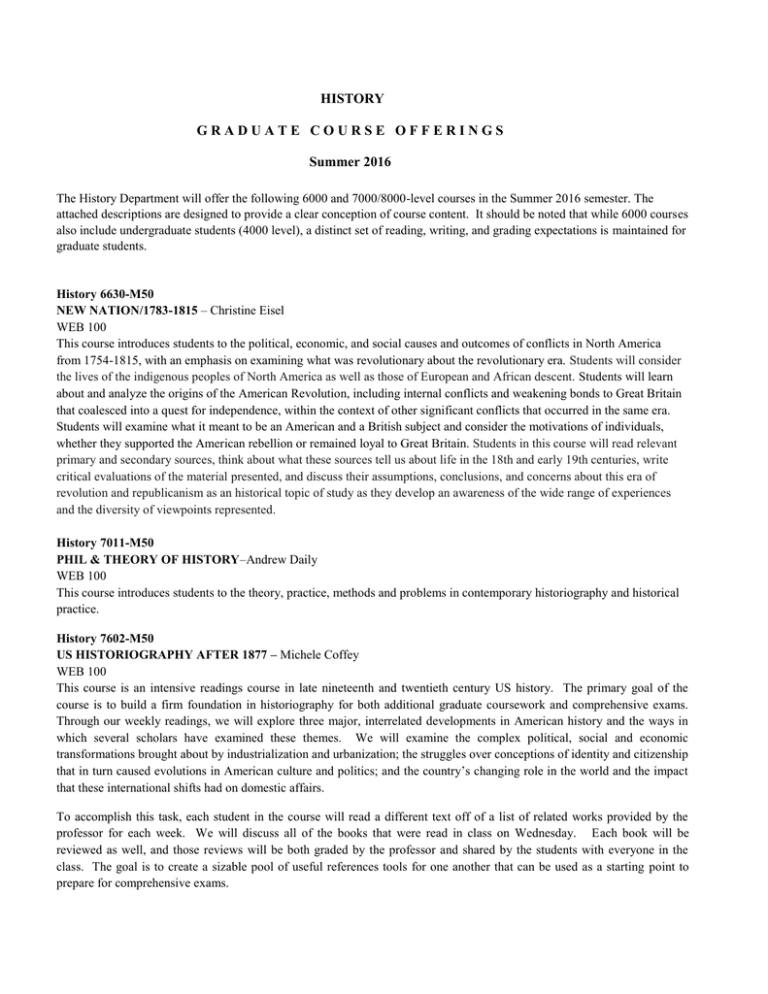
HISTORY GRADUATE COURSE OFFERINGS Summer 2016 The History Department will offer the following 6000 and 7000/8000-level courses in the Summer 2016 semester. The attached descriptions are designed to provide a clear conception of course content. It should be noted that while 6000 courses also include undergraduate students (4000 level), a distinct set of reading, writing, and grading expectations is maintained for graduate students. History 6630-M50 NEW NATION/1783-1815 – Christine Eisel WEB 100 This course introduces students to the political, economic, and social causes and outcomes of conflicts in North America from 1754-1815, with an emphasis on examining what was revolutionary about the revolutionary era. Students will consider the lives of the indigenous peoples of North America as well as those of European and African descent. Students will learn about and analyze the origins of the American Revolution, including internal conflicts and weakening bonds to Great Britain that coalesced into a quest for independence, within the context of other significant conflicts that occurred in the same era. Students will examine what it meant to be an American and a British subject and consider the motivations of individuals, whether they supported the American rebellion or remained loyal to Great Britain. Students in this course will read relevant primary and secondary sources, think about what these sources tell us about life in the 18th and early 19th centuries, write critical evaluations of the material presented, and discuss their assumptions, conclusions, and concerns about this era of revolution and republicanism as an historical topic of study as they develop an awareness of the wide range of experiences and the diversity of viewpoints represented. History 7011-M50 PHIL & THEORY OF HISTORY–Andrew Daily WEB 100 This course introduces students to the theory, practice, methods and problems in contemporary historiography and historical practice. History 7602-M50 US HISTORIOGRAPHY AFTER 1877 – Michele Coffey WEB 100 This course is an intensive readings course in late nineteenth and twentieth century US history. The primary goal of the course is to build a firm foundation in historiography for both additional graduate coursework and comprehensive exams. Through our weekly readings, we will explore three major, interrelated developments in American history and the ways in which several scholars have examined these themes. We will examine the complex political, social and economic transformations brought about by industrialization and urbanization; the struggles over conceptions of identity and citizenship that in turn caused evolutions in American culture and politics; and the country’s changing role in the world and the impact that these international shifts had on domestic affairs. To accomplish this task, each student in the course will read a different text off of a list of related works provided by the professor for each week. We will discuss all of the books that were read in class on Wednesday. Each book will be reviewed as well, and those reviews will be both graded by the professor and shared by the students with everyone in the class. The goal is to create a sizable pool of useful references tools for one another that can be used as a starting point to prepare for comprehensive exams. This course is as much about being a community of scholars as it is about historiography. In order for this course to be a valuable resource for all of those enrolled, it is vital that you take your personal commitment to being part of that community seriously as you are signing up for this course. You will not just be reading for yourself. You will be reading for your peers as well. That is both a weighty commitment and a beautiful gift. I hope that you will choose the responsibility of becoming part of this community.
